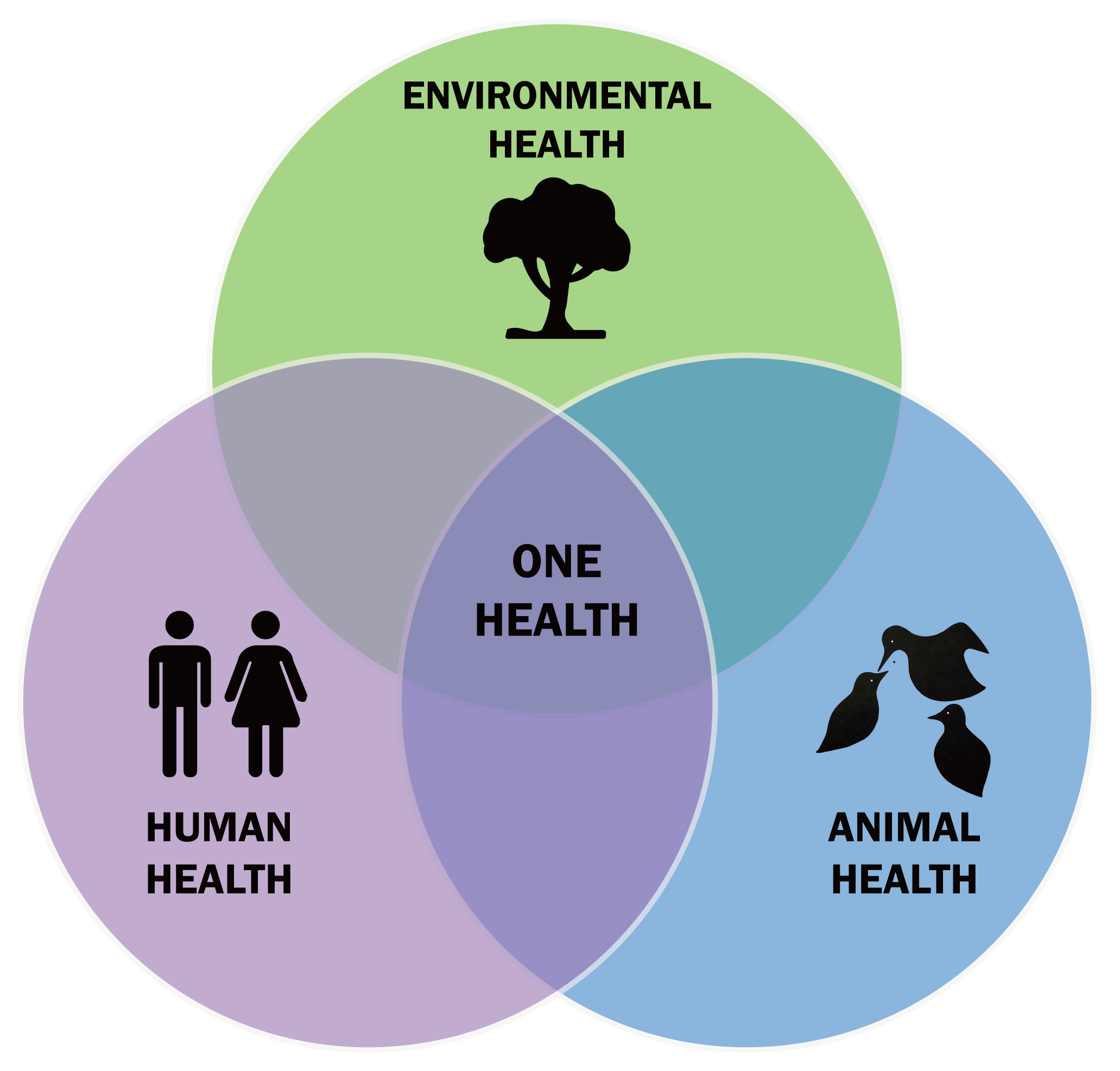FAQs
1. How does One Health differ from public health or veterinary medicine?
One Health is a broader, collaborative framework that integrates vital components like public health and veterinary medicine with environmental science, agriculture, and other fields. This approach addresses complex health challenges that no single discipline can solve alone, relying instead on interdisciplinary teamwork and systemic thinking.
2. Who implements One Health in practice?
International organizations like the World Health Organization (WHO), the Food and Agriculture Organization of the United Nations (FAO), and the World Organization for Animal Health (WOAH) play a significant role in promoting and coordinating One Health initiatives globally. However, it is the wide array of professionals including scientists, veterinarians, medical doctors, epidemiologists, ecologists, environmentalists, agricultural experts, public policy makers, and community leaders, who implement One Health.
3. Can individuals contribute to One Health efforts?
Yes, absolutely! Individual actions contribute significantly to One Health. One can practice responsible pet ownership, support sustainable food systems, conserve natural habitats, reduce their carbon footprint, dispose of waste properly, and advocate for policies that promote environmental health. Making such choices with the knowledge about the interconnectedness of health benefits themselves, animals, and the planet.
Reference
1. Frank, D. (2008). One world, one health, one medicine. The Canadian veterinary journal, 49(11), 1063.
2. Lerner, H. (2019). A critical analysis of definitions of health as balance in a One Health perspective. Medicine, Health Care and Philosophy, 22(3), 453-461.
3. Errecaborde, K. M., Macy, K. W., Pekol, A., et al. (2019). Factors that enable effective one health collaborations-a scoping review of the literature. PLoS One, 14(12), e0224660.
4. Ghai, R. R., Wallace, R. M., Kile, J. C., et al. (2022). A generalizable one health framework for the control of zoonotic diseases. Scientific reports, 12(1), 8588.
5. Kim, D. W., & Cha, C. J. (2021). Antibiotic resistome from the One-Health perspective: understanding and controlling antimicrobial resistance transmission. Experimental & molecular medicine, 53(3), 301-309.
6. Qian, J., Wu, Z., Zhu, Y., et al. (2022). One Health: a holistic approach for food safety in livestock. Science in One Health, 1, 100015.
7. Yan, Z., Xiong, C., Liu, H., et al. (2022). Sustainable agricultural practices contribute significantly to One Health. Journal of Sustainable Agriculture and Environment, 1(3), 165-176.
8. Faburay, B. (2015). The case for a ‘one health’approach to combating vector-borne diseases. Infection ecology & epidemiology, 5(1), 28132.
9. Chandler, M., Cunningham, S., Lund, E. M., et al. (2017). Obesity and associated comorbidities in people and companion animals: a one health perspective. Journal of comparative pathology, 156(4), 296-309.
10. Ueda, Y., & Stern, J. A. (2017). A one health approach to hypertrophic cardiomyopathy. The Yale journal of biology and medicine, 90(3), 433.
11. Viani, A., Orusa, T., Borgogno-Mondino, E., et al. (2024). A one health google earth engine web-GIS application to evaluate and monitor water quality worldwide. Euro-Mediterranean Journal for Environmental Integration, 1-14.
12. Panel, O. H. H. L. E., Hayman, D. T., Adisasmito, W. B., et al. (2023). Developing one health surveillance systems. One Health, 17, 100617.
13. Kumar, A. (2022). Disaster response under “One Health” approach: contribution of veterinary public health. In Management of Animals in Disasters (pp. 245-261). Singapore: Springer Nature Singapore.
14. Bhatia, R. (2021). National Framework for One Health. Food & Agriculture Org..
15. Barnett, T., Pfeiffer, D. U., Hoque, M. A., et al. (2020). Practising co-production and interdisciplinarity: Challenges and implications for one health research. Preventive veterinary medicine, 177, 104949.
16. Henley, P., Igihozo, G., & Wotton, L. (2021). One Health approaches require community engagement, education, and international collaborations—a lesson from Rwanda. Nature Medicine, 27(6), 947-948.
17. Gostin, L. O., & Friedman, E. A. (2015). The sustainable development goals: one-health in the world’s development agenda. Jama, 314(24), 2621-2622.
18. Narrod, C., Zinsstag, J., & Tiongco, M. (2012). A one health framework for estimating the economic costs of zoonotic diseases on society. EcoHealth, 9, 150-162.
19. Lerner, H., & Berg, C. (2017). A comparison of three holistic approaches to health: one health, ecohealth, and planetary health. Frontiers in veterinary science, 4, 163.
20. Gibbs, E. P. J. (2014). The evolution of One Health: a decade of progress and challenges for the future. Veterinary Record, 174(4), 85-91.
21. Machalaba, C., Romanelli, C., Stoett, P., Baum, S. E., Bouley, T. A., Daszak, P., & Karesh, W. B. (2015). Climate change and health: transcending silos to find solutions. Annals of Global Health, 81(3), 445-458.
22. Asaaga, F. A., Young, J. C., Oommen, M. A., et al. (2021). Operationalising the “One Health” approach in India: facilitators of and barriers to effective cross-sector convergence for zoonoses prevention and control. BMC public health, 21, 1-21.
23. Villanueva-Cabezas, J. P., Winkel, K. D., Campbell, P. T., et al. (2022). One Health education should be early, inclusive, and holistic. The Lancet Planetary Health, 6(3), e188-e189.
24. Prata, J. C., da Costa, J. P., Lopes, I., et al. (2021). A One Health perspective of the impacts of microplastics on animal, human and environmental health. Science of the Total Environment, 777, 146094.
